
The Mystical Sands of Timbuktu
Timbuktu, a city steeped in history and mystery, is located on the southern edge of the Sahara Desert in Mali. Once a thriving hub of trade and learning during the 15th and 16th centuries, it was famous for its wealth, scholarly manuscripts, and vibrant culture. Today, Timbuktu offers a unique glimpse into a world where the past and present coexist harmoniously. Visitors to Timbuktu can explore a variety of ancient mosques and cultural sites. The Djinguereber Mosque, built in 1327, stands as a testament to the city's historical and architectural significance. The Sankore University, once a beacon of learning, still attracts history enthusiasts and scholars from around the world. The city is also known for its impressive manuscript collections. These ancient texts, some dating back to the 13th century, cover a wide range of subjects including astronomy, medicine, and literature. A visit to the Ahmed Baba Institute gives tourists the opportunity to see these priceless treasures up close. Timbuktu is not just about history and culture; the local markets offer an authentic experience of Malian life. Here, tourists can purchase unique crafts, vibrant textiles, and savor local cuisine. Despite its remote location, Timbuktu continues to be a place of wonder and discovery for those who seek to understand its rich heritage.
Local tips in Timbuktu
- Visit during the cooler months of November to February to avoid the extreme heat.
- Hire a local guide to gain deeper insights into the history and significance of key sites.
- Respect local customs and dress modestly, especially when visiting religious sites.
- Carry cash, as credit card facilities are limited in Timbuktu.
- Check current travel advisories, as the political situation can affect travel safety.
The Mystical Sands of Timbuktu
Timbuktu, a city steeped in history and mystery, is located on the southern edge of the Sahara Desert in Mali. Once a thriving hub of trade and learning during the 15th and 16th centuries, it was famous for its wealth, scholarly manuscripts, and vibrant culture. Today, Timbuktu offers a unique glimpse into a world where the past and present coexist harmoniously. Visitors to Timbuktu can explore a variety of ancient mosques and cultural sites. The Djinguereber Mosque, built in 1327, stands as a testament to the city's historical and architectural significance. The Sankore University, once a beacon of learning, still attracts history enthusiasts and scholars from around the world. The city is also known for its impressive manuscript collections. These ancient texts, some dating back to the 13th century, cover a wide range of subjects including astronomy, medicine, and literature. A visit to the Ahmed Baba Institute gives tourists the opportunity to see these priceless treasures up close. Timbuktu is not just about history and culture; the local markets offer an authentic experience of Malian life. Here, tourists can purchase unique crafts, vibrant textiles, and savor local cuisine. Despite its remote location, Timbuktu continues to be a place of wonder and discovery for those who seek to understand its rich heritage.
When is the best time to go to Timbuktu?
Iconic landmarks you can’t miss
Djingareyber Mosque
Explore the historic Djingareyber Mosque in Timbuktu, a UNESCO World Heritage Site and a symbol of Mali's rich cultural heritage.
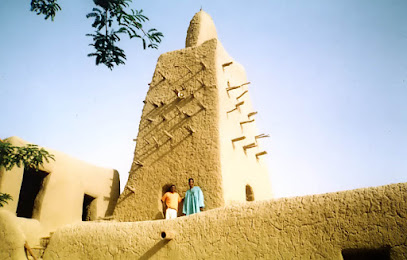
Ethnological Museum Timbuktu
Discover Mali's cultural heritage at the Ethnological Museum Timbuktu, showcasing traditions, artifacts, and the city's historical legacy.
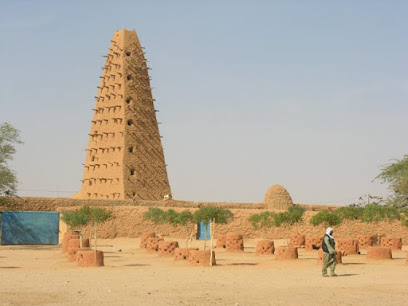
Monuments De La Paix
A peace monument in Timbuktu symbolizing the end of conflict and a commitment to reconciliation in a historically rich city.
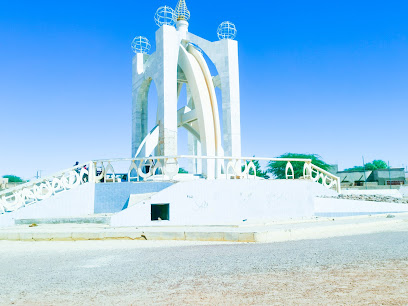
Unmissable attractions to see
Djingareyber Mosque
Explore the ancient Djingareyber Mosque in Timbuktu, a UNESCO World Heritage site showcasing stunning earthen architecture and rich cultural history.
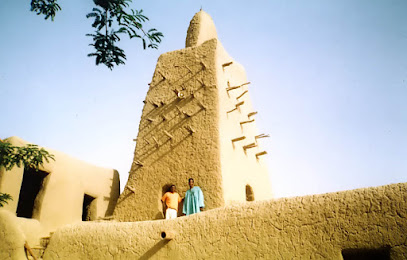
Sidi Yahiya Mosque
Explore the Sidi Yahiya Mosque, a historical jewel of Timbuktu, showcasing stunning architecture and rich cultural heritage.
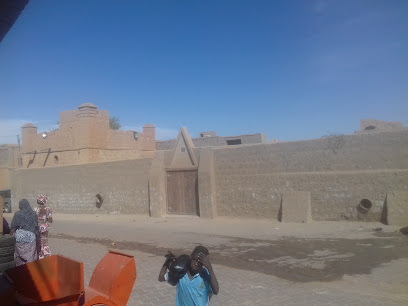
Ahmed Baba Institute
Explore the Ahmed Baba Institute in Timbuktu, where centuries of African scholarship and culture come alive through ancient manuscripts and rich history.
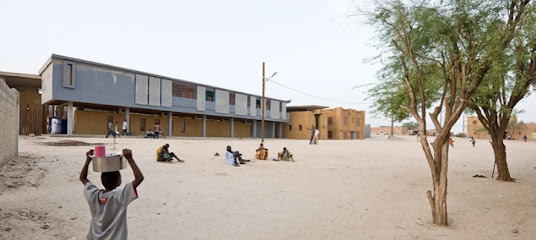
Ethnological Museum Timbuktu
Explore the rich cultural heritage of Timbuktu at the Ethnological Museum, a hub of history showcasing artifacts and manuscripts from a legendary past.
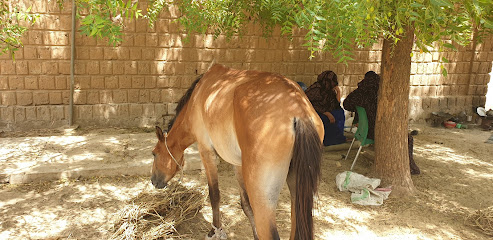
Araouane
Experience the rich culture and breathtaking landscapes of Araouane, a hidden gem in Mali perfect for adventurous travelers seeking authenticity.
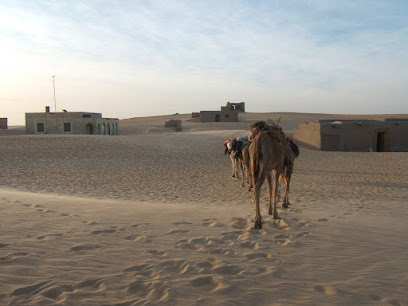
Salt mining ,taoudani
Experience the captivating salt mining heritage in Taoudani, Agorgot, where tradition meets breathtaking landscapes.
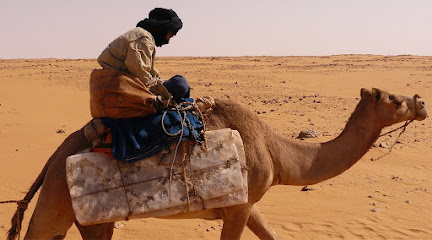
Martyrs de l'indépendance
Discover the serenity and historical significance of Martyrs de l'indépendance, a park dedicated to Mali's heroes in the heart of Timbuktu.
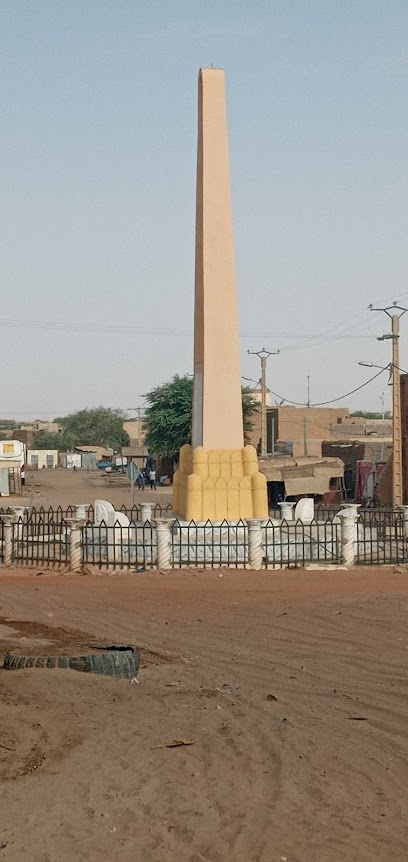
Mission Culturelle de Tombouctou
Explore the Mission Culturelle de Tombouctou, a vital heritage site preserving the rich cultural history of Timbuktu and its ancient wisdom.
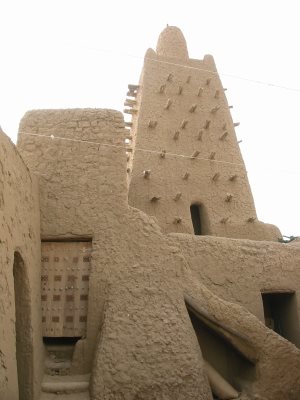
تيمبكتوا جمهورية مالي
Discover the enchanting Timbuktu, a UNESCO World Heritage Site known for its rich history, unique architecture, and vibrant cultural heritage in the heart of Mali.

Site Sidi Naji
Explore the serene beauty of Site Sidi Naji, a lush garden in Timbuktu that offers a tranquil escape amidst the city's rich history.

هندوhandaw
Explore the historical wonders of Timbuktu at Hindouhandaw, a key attraction that embodies the rich heritage of this ancient city.

Allimah Ben Essayouti
Explore the serene Allimah Ben Essayouti Park in Timbuktu, Mali—where nature meets culture in a peaceful oasis.

Essential places to dine
Poulet d'Or Restaurant
Experience authentic Malian flavors at Poulet d'Or Restaurant in Timbuktu – where tradition meets taste.
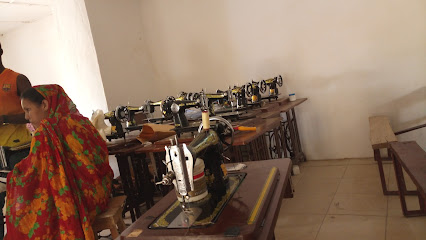
Pâtisserie Aco
Discover the flavors of Timbuktu at Pâtisserie Aco - where exquisite pastries meet local culinary traditions.
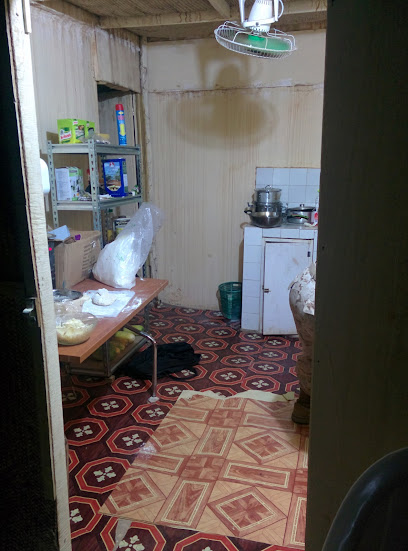
Restaurant
Discover authentic Malian cuisine in Timbuktu's vibrant restaurant scene, offering traditional dishes with local flair in a welcoming atmosphere.
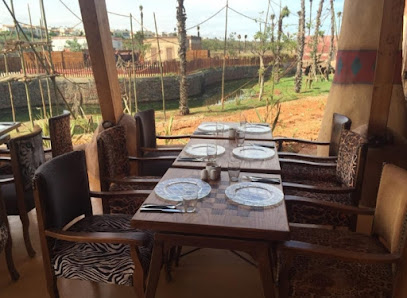
Salam Restaurant
Experience authentic African flavors at Salam Restaurant in Timbuktu - where tradition meets culinary delight.
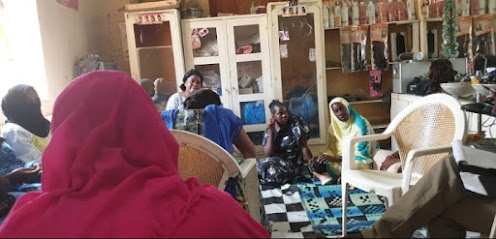
Amanar Restaurant
Discover authentic Malian cuisine at Amanar Restaurant in Timbuktu – where tradition meets flavor in a cozy setting.
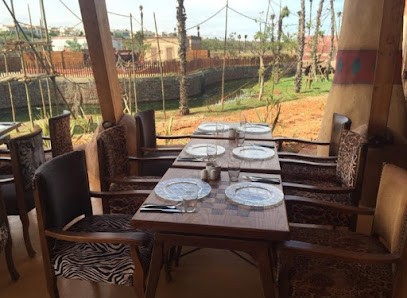
Le Souvenir
Discover authentic Malian cuisine at Le Souvenir in Timbuktu - where every dish tells a story.
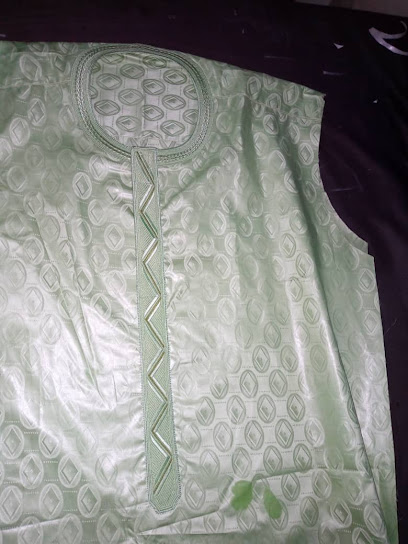
Restaurant Favela
Experience the authentic flavors of Timbuktu at Restaurant Favela - where every dish tells a story.
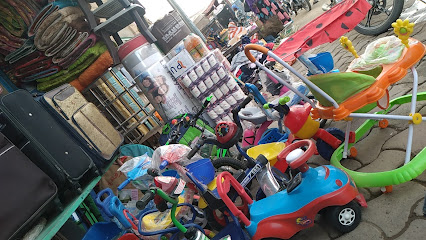
Al Hayat Restaurant
Discover authentic Malian flavors at Al Hayat Restaurant in Timbuktu – where tradition meets taste.
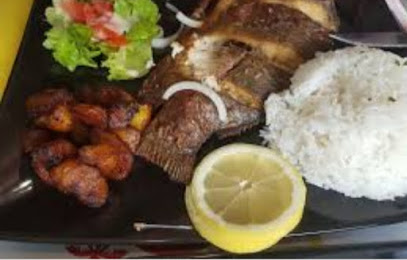
Markets, malls and hidden boutiques
Petit Market
Explore the vibrant Petit Market in Timbuktu, where local culture, crafts, and authentic Malian cuisine come together in a lively atmosphere.
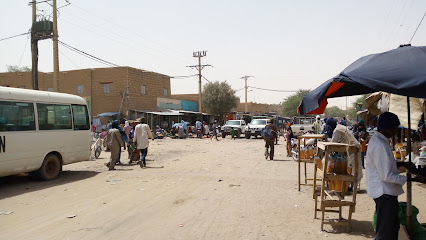
ولدأحمدسالم لعيشي
Discover the essence of Malian fashion at ولدأحمدسالم لعيشي, a unique clothing store in the heart of Timbuktu, blending tradition with modern style.
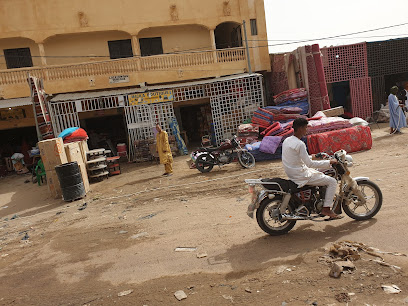
hamma rwayjgal kourtawa
Experience the heart of Timbuktu at Hamma Rwayjgal Kourtawa, a vibrant grocery store brimming with local flavors and cultural treasures.

Mohammed Ould Ahmed
Experience the vibrant flavors of Mali at Mohammed Ould Ahmed, a local grocery store in Timbuktu offering fresh produce and authentic ingredients.
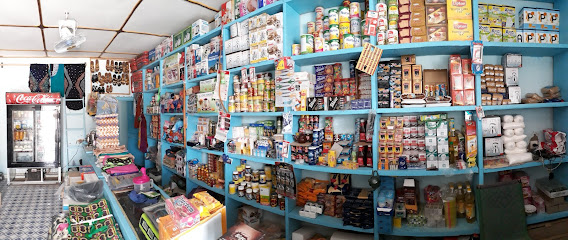
Chez soulaymane ould mohamed
Experience the unique blend of traditional and modern shopping at Chez Soulaymane Ould Mohamed in Timbuktu, a hub of culture and commerce.
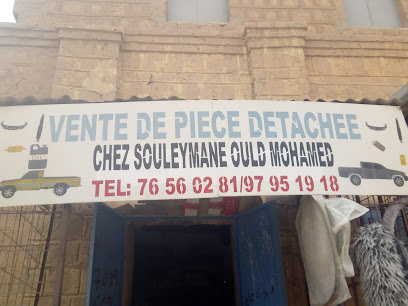
Arawane Couture
Discover the vibrant local fashion scene at Arawane Couture in Timbuktu, where traditional craftsmanship meets contemporary style.
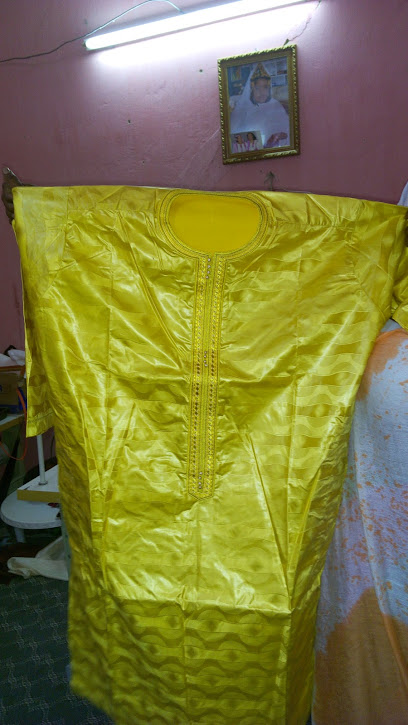
Toyota boutique
Visit the Toyota Boutique in Timbuktu for an unparalleled selection of genuine Toyota auto parts, combining quality and expertise in a unique shopping experience.
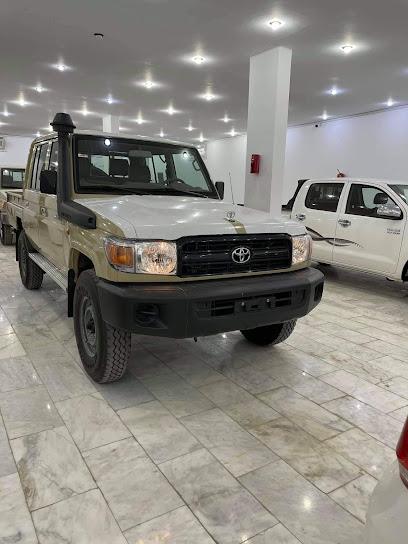
Boutique près du gendarme
Explore the rich culture of Timbuktu at Boutique près du gendarme, your destination for unique local crafts and authentic souvenirs.
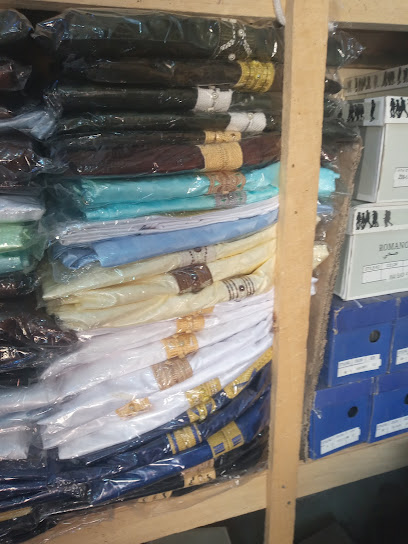
Istanbul pour Les parfums et le commerce General
Explore the vibrant shopping experience at Istanbul pour Les Parfums et le Commerce General in Timbuktu, where tradition meets modernity.
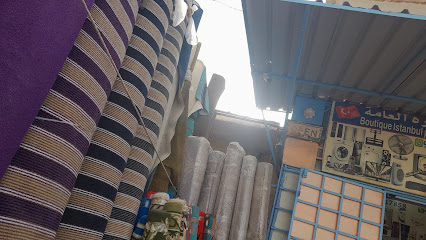
Mariam
Explore Mariam in Timbuktu for authentic local crafts, delicious snacks, and a taste of Mali's vibrant culture straight from the heart of the city.
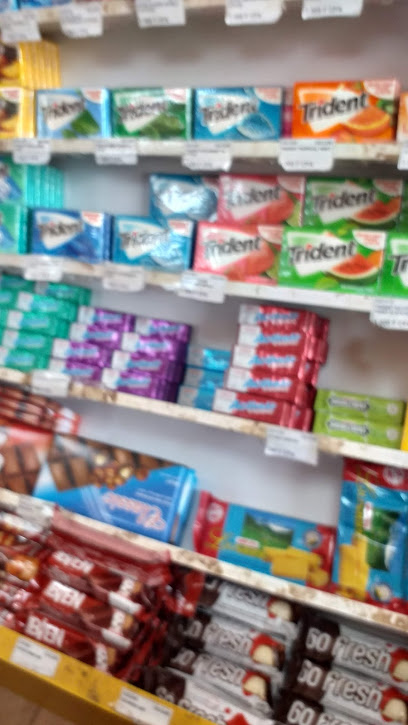
سوق السلام
Experience the vibrant atmosphere of سوق السلام, a cultural market in Timbuktu filled with handmade crafts, delicious street food, and local traditions.

Kome couture
Discover the heart of Timbuktu's textile culture at Kome Couture, a sewing shop offering unique fabrics and craftsmanship.
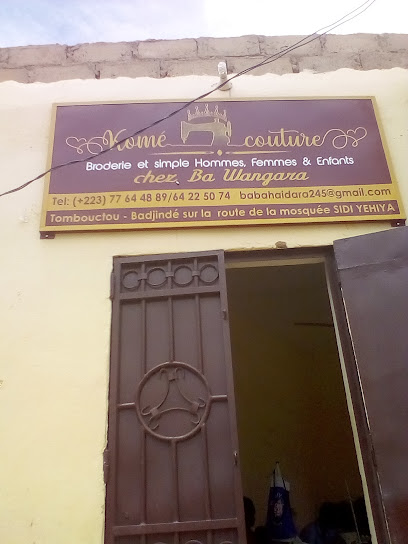
حمودي الود
Explore حمودي الود in Timbuktu: A treasure trove of home goods that reflect Mali's rich culture and artistic heritage.
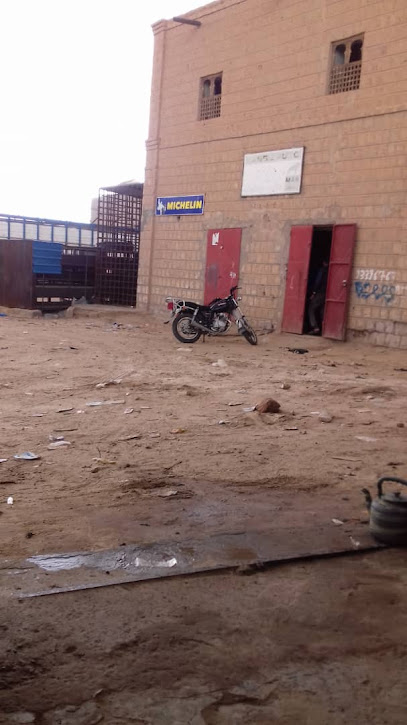
عبد الله حميدا
Discover the vibrant fashion of Timbuktu at Abdullah Hamida, where local craftsmanship meets authentic style.

Dubaï Boutique
Explore Dubaï Boutique in Timbuktu for unique Malian crafts and immerse yourself in the vibrant culture of Mali.

Essential bars & hidden hideouts
Bla Bla Bar
Discover the essence of Bamako's nightlife at Bla Bla Bar, where vibrant culture meets refreshing drinks in a lively atmosphere.
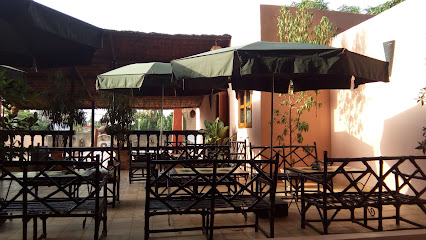
Djingareyber Mosque
Discover the Djingareyber Mosque, an architectural masterpiece in Timbuktu, reflecting Mali's rich history and cultural heritage.
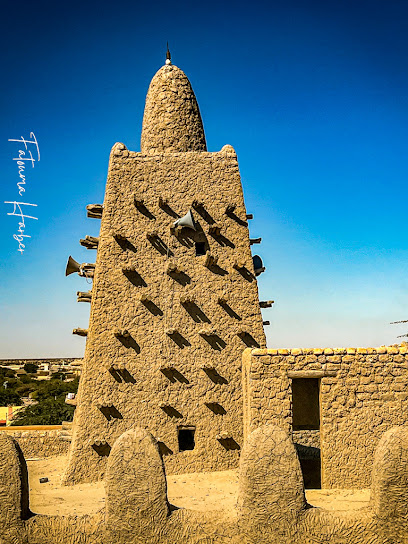
Aéroport de Tombouctou
Discover the enchanting Aéroport de Tombouctou, your gateway to the ancient city of Timbuktu, rich in culture and history.
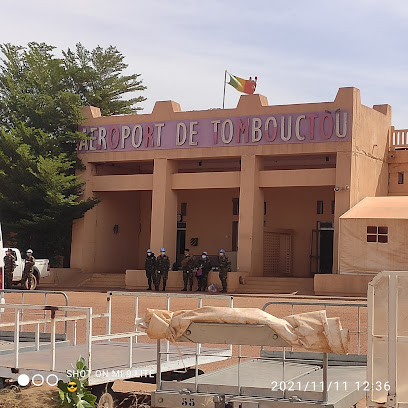
Hendrina Khan
Discover the charm of Timbuktu while enjoying the comfort and hospitality of Hendrina Khan Hotel, your perfect travel retreat.

Izba bar
Discover the vibrant nightlife at Izba Bar, a lively restaurant and bar in Bamako, offering local cuisine and a welcoming atmosphere.
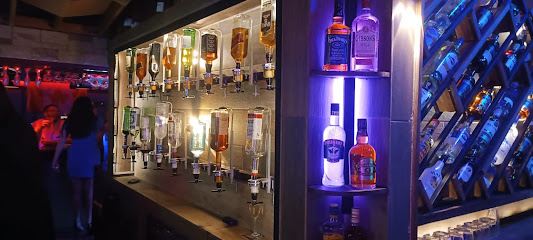
Poulet d'Or Restaurant
Discover the flavors of Malian cuisine at Poulet d'Or Restaurant in Timbuktu, where each dish tells a story of cultural heritage.
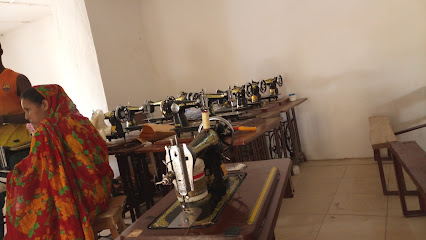
Le Rooftop Bamako
Experience Bamako from above at Le Rooftop Bamako, where local flavors and stunning views blend for an unforgettable dining experience.
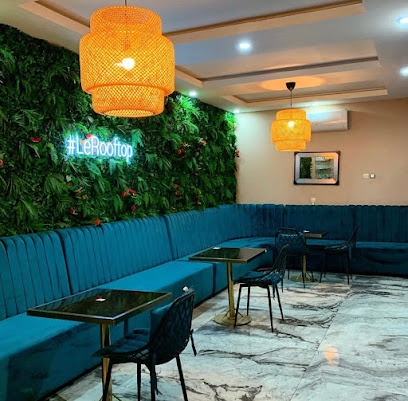
Pâtisserie Aco
Discover the sweet side of Timbuktu at Pâtisserie Aco, where delicious pastries and local flavors come together in a charming setting.
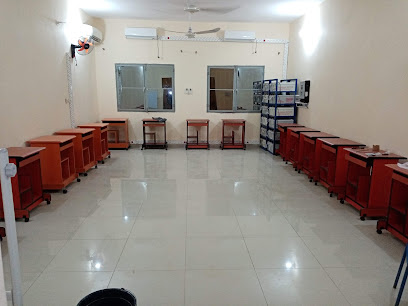
Le Pub Bar
Experience the vibrant nightlife of Bamako at Le Pub Bar, where local culture meets a welcoming atmosphere and refreshing drinks.
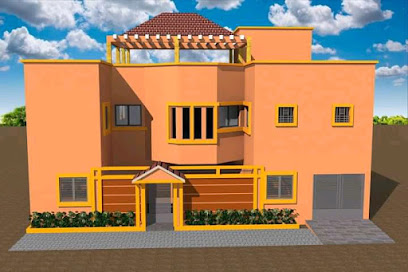
Timbuktu Mali
Discover the legendary Timbuktu, a UNESCO World Heritage Site and a cultural gem at the edge of the Sahara, rich in history and architectural marvels.
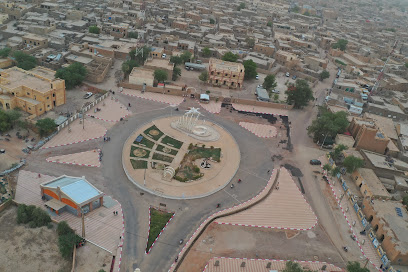
Bar LAFIA Yirimadio
Discover the lively spirit of Bamako at Bar LAFIA Yirimadio, where great drinks and vibrant culture come together.
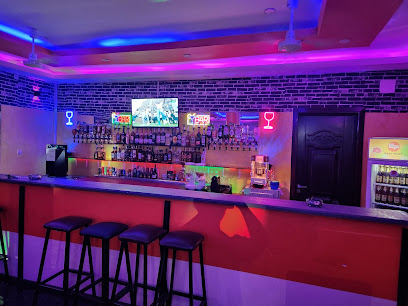
Restaurant
Experience the authentic flavors of Timbuktu at this charming restaurant, where every dish tells a story of Mali's rich culinary heritage.
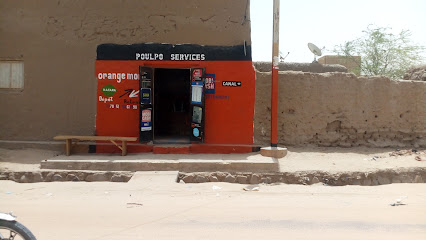
Salam Restaurant
Experience authentic African cuisine in the heart of Timbuktu at Salam Restaurant, where flavors and culture unite.
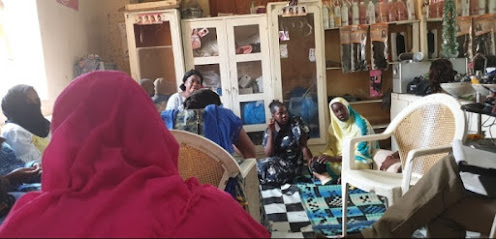
Amanar Restaurant
Discover the authentic flavors of Mali at Amanar Restaurant, a culinary gem in the heart of Timbuktu, offering a delightful taste of local cuisine.
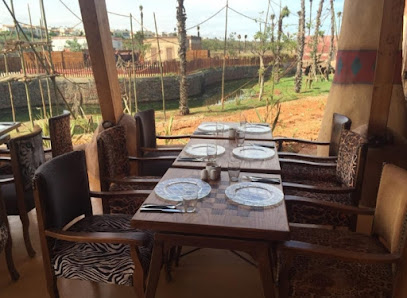
Local Phrases about Timbuktu
-
- HelloSalam
[sa-lam] - GoodbyeAn kawo
[an ka-wo] - YesEh
[eh] - NoA'a
[a-a] - Please/You're welcomeKarimu
[ka-ri-mu] - Thank youNgaara
[nga-a-ra] - Excuse me/SorrySamay
[sa-may] - How are you?Ina an kawo?
[i-na an ka-wo] - Fine. And you?Na gode. Kana lafiya?
[na go-de. ka-na la-fi-ya] - Do you speak English?Ka fada Turanci?
[ka fa-da tu-ran-chi] - I don't understandBa a gaskia
[ba a gas-ki-a]
- HelloSalam
-
- I'd like to see the menu, pleaseIna so ka nuna menu, don Allah
[i-na so ka nu-na me-nu, don al-lah] - I don't eat meatBa na je ƙarni
[ba na je kar-ni] - Cheers!Sai an jima
[sai an ji-ma] - I would like to pay, pleaseIna so ka kudi, don Allah
[i-na so ka ku-di, don al-lah]
- I'd like to see the menu, pleaseIna so ka nuna menu, don Allah
-
- Help!Mai kyau!
[ma-i kyau] - Go away!Juya!
[ju-ya] - Call the Police!Kira tsare gida!
[ki-ra tsa-re gi-da] - Call a doctor!Kira likita!
[ki-ra li-ki-ta] - I'm lostNa zama wani abu
[na za-ma wa-ni a-bu] - I'm illNa ƙasa
[na kasa]
- Help!Mai kyau!
-
- I'd like to buy...Ina so ka sayar da...
[i-na so ka sa-ya-r da] - I'm just lookingBan taba jin
[ban ta-ba jin] - How much is it?Yaya ne?
[ya-ya ne] - That's too expensiveWannan yana da kyau
[wan-nan ya-na da kyau] - Can you lower the price?Za ka sauke babban abin?
[za ka sau-ke bab-ban a-bin]
- I'd like to buy...Ina so ka sayar da...
-
- What time is it?Yaya lokacin?
[ya-ya lo-ka-chin] - It's one o'clockShida ne
[shi-da ne] - Half past (10)Goma da uku
[go-ma da u-ku] - MorningSafe
[sa-fe] - AfternoonRana
[ra-na] - EveningYamma
[yam-ma] - YesterdayJibi
[ji-bi] - TodayYau
[yau] - TomorrowGobe
[go-be] - 1Daya
[da-ya] - 2Biyu
[bi-yu] - 3Uku
[u-ku] - 4Huɗu
[hu-du] - 5Biwar
[bi-war] - 6Shida
[shi-da] - 7Bakwai
[ba-kwai] - 8Takwas
[tak-was] - 9Tara
[ta-ra] - 10Goma
[go-ma]
- What time is it?Yaya lokacin?
-
- Where's a/the...?Ina da...?
[i-na da] - What's the address?Yaya ne adireshin?
[ya-ya ne a-di-re-sin] - Can you show me (on the map)?Za ka nuna min (a cikin bishar)?
[za ka nu-na min (a ci-kin bi-shar)] - When's the next (bus)?Lokacin wannan?
[lo-ka-chin wan-nan] - A ticket (to ....)Takiti (zuwa ....)
[ta-ki-ti (zu-wa)]
- Where's a/the...?Ina da...?
History of Timbuktu
-
Timbuktu was founded in the early 12th century by the Tuareg people. It started as a seasonal settlement and eventually grew into a key city in the trans-Saharan trade routes. Its strategic location near the Niger River made it a natural meeting point for traders and scholars.
-
During the 14th century, Timbuktu flourished as part of the Mali Empire under the rule of Mansa Musa, one of the wealthiest individuals in history. The city became a major center of trade, culture, and Islamic scholarship. Mansa Musa’s pilgrimage to Mecca in 1324 brought international attention to Timbuktu’s wealth and academic prowess.
-
By the 15th and 16th centuries, Timbuktu had established itself as a significant center for Islamic learning. The University of Sankore, along with other madrasas, attracted scholars from across the Islamic world. Manuscripts covering various fields such as science, law, and history were produced and collected, making Timbuktu a repository of African and Islamic knowledge.
-
In the late 15th century, Timbuktu came under the control of the Songhai Empire, reaching new heights of prosperity. The Songhai rulers continued to support scholarly activities and trade, further cementing Timbuktu’s reputation as a hub of knowledge and commerce. This period saw the construction of iconic structures such as the Djinguereber Mosque.
-
In 1591, the Moroccan army invaded Timbuktu, leading to significant changes. The city’s libraries and scholars suffered during this period as many manuscripts were lost or taken. Despite the turmoil, Timbuktu remained a vital center of trade and learning, albeit diminished in its former glory.
-
With the advent of European colonialism in the 19th century, Timbuktu’s importance waned. French colonial forces occupied the city in 1893, integrating it into the French Sudan. The trans-Saharan trade routes diminished in significance, and Timbuktu’s role as a center of commerce and scholarship declined.
-
In recent decades, Timbuktu has faced various challenges, including political instability and threats to its cultural heritage. Efforts by the Malian government and international organizations have focused on preserving the city’s historic manuscripts and buildings. Today, Timbuktu remains a symbol of Africa’s rich intellectual and cultural history, attracting scholars and tourists from around the world.
-
The Timbuktu Manuscripts are a testament to the city’s scholarly past. These thousands of documents, some dating back to the 13th century, cover a wide range of subjects including astronomy, medicine, law, and theology. Efforts to digitize and preserve these manuscripts have been crucial in safeguarding Timbuktu’s intellectual heritage for future generations.
Timbuktu Essentials
-
Timbuktu is located in Mali and can be accessed by various means. The nearest airport is Timbuktu Airport (TOM), which has occasional flights from Bamako, the capital of Mali. However, these flights can be infrequent, so it's advisable to check schedules in advance. Another option is to fly into Mopti and then take a boat or 4x4 vehicle to Timbuktu. The journey from Mopti by road can take up to 10 hours, and river transport can vary depending on the season.
-
Within Timbuktu, transportation options are limited. Walking is the most common way to get around, as many of the historic sites are within close proximity. For longer distances, local taxis and motorcycle taxis (known as 'moto-taxis') are available. It's best to agree on a fare before starting the journey. Renting a 4x4 vehicle with a driver is also an option for exploring the surrounding desert areas.
-
The official currency in Mali is the West African CFA Franc (XOF). Credit cards are not widely accepted in Timbuktu, so it is essential to carry sufficient cash. There are a few ATMs in Timbuktu, but they may not always be reliable, so it is advisable to withdraw cash in Bamako or Mopti before traveling to Timbuktu.
-
Timbuktu has experienced security challenges, including threats from armed groups. It is crucial to stay informed about the current security situation by consulting travel advisories from your home country. Avoid traveling at night and stay within well-known areas. Be cautious around the neighborhoods of Abaradjou and Sankoré, which have had higher crime rates targeting tourists. Hiring a local guide can enhance your safety and provide valuable insights.
-
In case of an emergency, contact local authorities immediately. The emergency phone number for police in Mali is 17, and for medical emergencies, it is 15. It is advisable to have travel insurance that covers medical emergencies and evacuation. The local hospital and medical facilities have limited resources, so for severe cases, evacuation to Bamako or another country may be necessary.
-
Fashion: Do dress conservatively, respecting local customs. Avoid wearing revealing clothing. Women should cover their shoulders and knees. Religion: Do respect Islamic traditions, as Timbuktu is a predominantly Muslim city. Avoid public displays of affection. Public Transport: Do negotiate fares beforehand and be respectful to drivers. Don't expect strict schedules. Greetings: Do greet people with a handshake and use the right hand. Avoid using the left hand for eating or giving items. Eating & Drinking: Do try local dishes and accept food offerings graciously. Don't eat with your left hand, as it is considered impolite.
-
To experience Timbuktu like a local, visit the local markets, such as the Sankoré market, where you can find traditional Tuareg crafts and local produce. Engage with the locals, who are often eager to share their rich history and culture. Don't miss visiting the ancient manuscripts at the Ahmed Baba Institute, which offer a glimpse into Timbuktu's scholarly past. For an authentic experience, consider staying in a traditional mud-brick house.
Nearby Cities to Timbuktu
-
Things To Do in Dédougou
-
Things To Do in Ziniaré
-
Things To Do in Koudougou
-
Things To Do in Ouagadougou
-
Things To Do in Bobo-Dioulasso
-
Things To Do in Niamey
-
Things To Do in Bamako
-
Things To Do in Wa
-
Things To Do in Tamale
-
Things To Do in Sunyani
-
Things To Do in Atakpamé
-
Things To Do in Faranah
-
Things To Do in Kumasi
-
Things To Do in Yamoussoukro
-
Things To Do in Daloa










